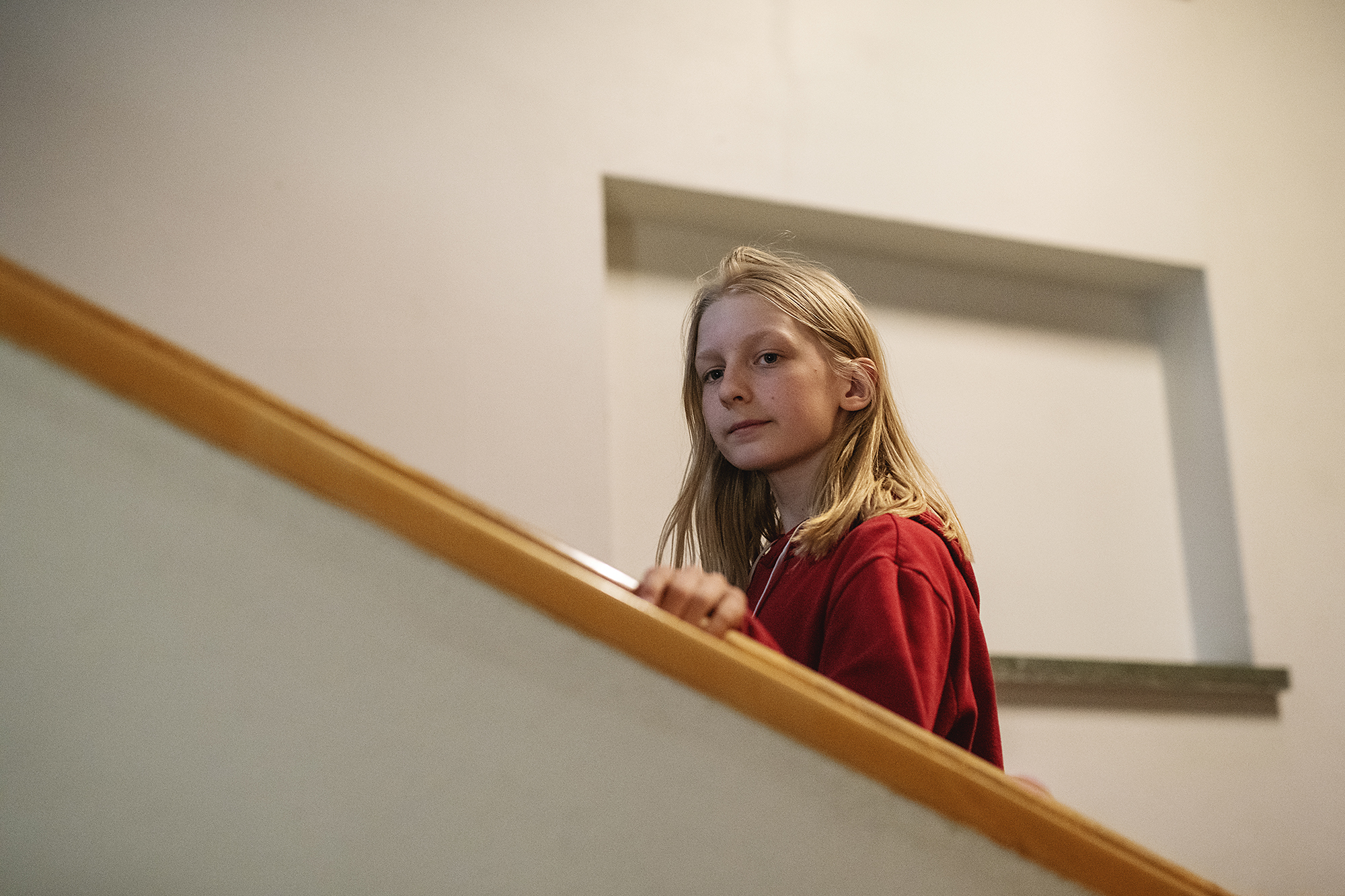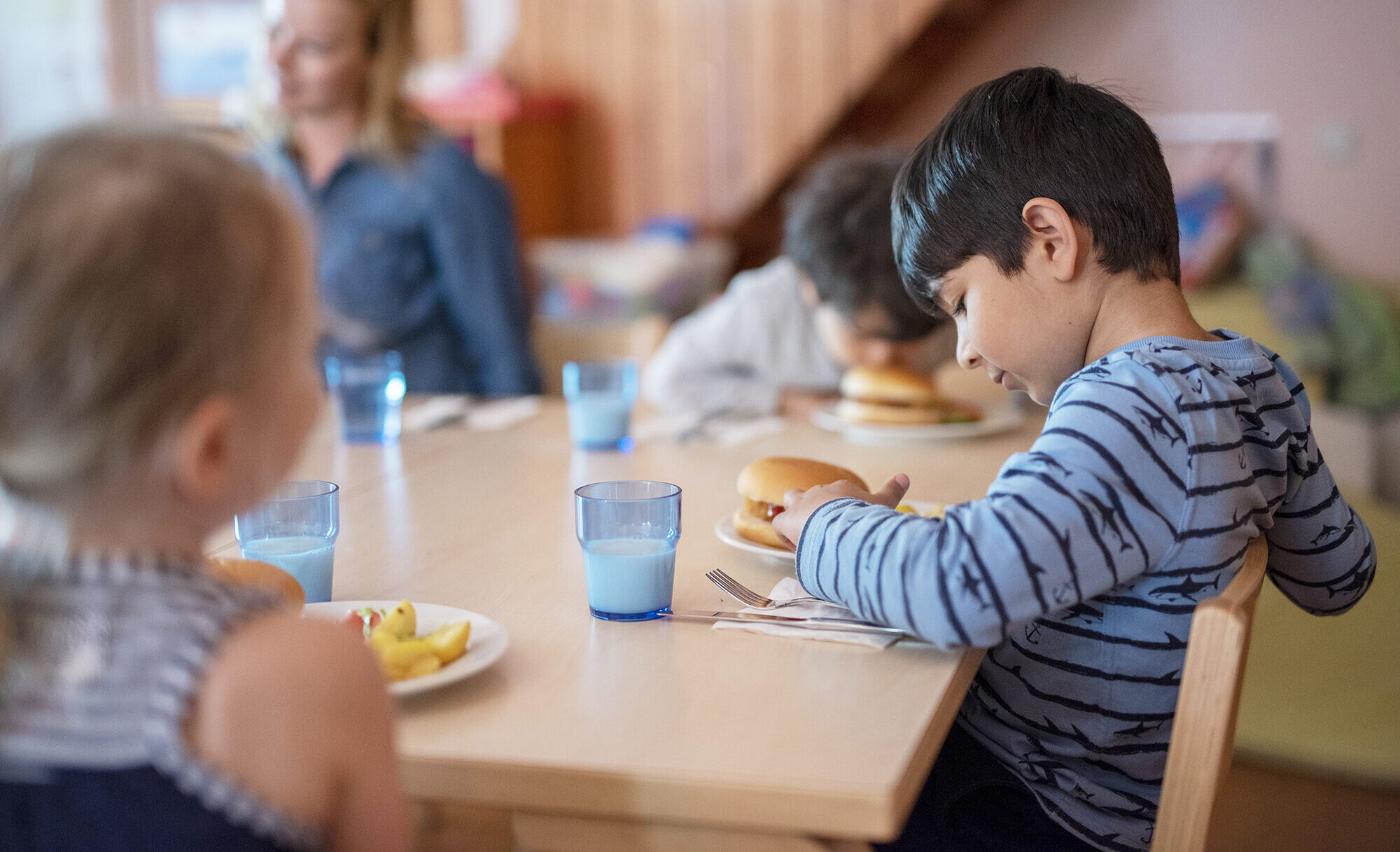The future of health and social care: Perspectives from Finland and Scotland
Health and social care systems across the world face increasingly complex challenges: tightening budgets, rising health inequalities, and the need to navigate interdependent services and policies. Addressing these challenges requires bold leadership, collaboration and a willingness to learn from one another’s successes and failures. In this context, international learning exchanges are essential. They can enable cross-cultural collaboration, allow leaders to share innovative solutions, challenge assumptions, and adapt successful practices to their contexts—ultimately driving meaningful, sustainable change in health and social care systems.
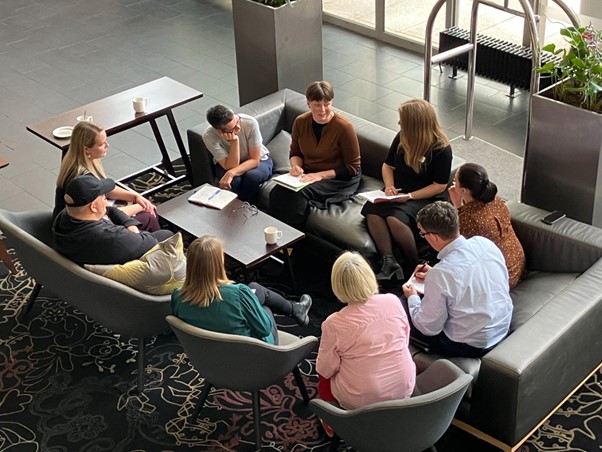
Last October, the Centre for Public Impact facilitated a study visit to Scotland for 25 Finnish public and third-sector leaders in children’s and family services. These participants were part of the Childhood Builders Programme, a year-long leadership training programme delivered by Itla Children’s Foundation. Over the two days, these future leaders explored how Scotland is improving public services for families, children, and young people. As the second cohort to visit Scotland, we had a unique opportunity to build on relationships and curate a space for participants and hosts to share, reflect and discuss their experiences of leading public service reform.
The power of international learning
During their visit, the Finnish delegation met with leaders from the Scottish Government’s Children and Families Policy Team, Village in the City, The Promise Scotland, and the Clackmannanshire Family Wellbeing Partnership. Through workshops, discussions, and site visits, participants uncovered practical insights into the leadership, systems, and values that create transformative change.
Mari Hirvonen, Senior Specialist at the Itla Foundation, met with representatives from the Scottish Government to share her work on developing an AI-powered tool that supports collaboration across services and communities in Finland. Reflecting on the visit, she emphasised that effective systems change requires more than isolated solutions, highlighting the importance of shared leadership:
“No single solution or person can solve the complex wellbeing issues that children, young people, and families face. Leaders need to create spaces for diverse voices to come together, enrich our collective understanding, and co-create multidisciplinary solutions. This means fostering a mindset of shared learning and collaboration, with leaders continually adapting based on feedback.”
Anne Penttilä, Director of Customer Service Unit at the Social Insurance Institution of Finland, echoed this sentiment, highlighting the need for a shift in mindsets and leadership from traditional hierarchical models to flexible, network-based approaches:
“Leaders must learn to share power, trust others, and embrace data-driven decision-making while honing essential human skills like creativity and empathy. Technology can support the process, but authentic dialogue and connection remain central to effective leadership.”
Underpinning the ability to share power is having the courage to do so. Onni Westlund, Development Manager at Pesäpuu [Finnish Child Protection Development Community], underscored the importance of courage in leadership:
“A leader must have the courage to do things differently, as rarely does anyone else give permission for it. Nothing changes as long as everyone waits for others to act first. Be brave, stay true to your values, and connect with others striving for meaningful impact.”
Building relationships and creating brave spaces
For the Finnish participants and their Scottish counterparts, the opportunity to connect face-to-face, share stories, and have honest conversations about leadership challenges created a space to reflect on the realities of public service delivery. These moments of connection reinforced the importance of putting people at the centre of services.
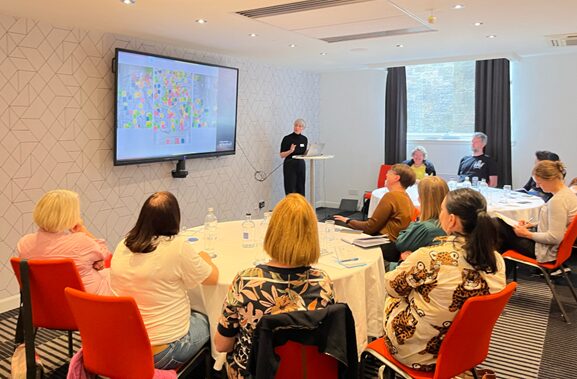
Kate Smith, Deputy Director for School Age Childcare at the Scottish Government, captured this idea, emphasising the value of community-centred approaches:
“Speak to people who will be the users of services as often as you can and be honest about what’s possible. Form networks of like-minded leaders and find your alliance. Build learning and reflection into improvement processes, and be prepared to respond and adapt quickly”
Building on this, Paul Gorman, Empowered Children and Young People Programme Lead, Children’s Rights Unit at the Scottish Government, highlighted the need to embrace this complexity and the role of self-awareness in systems leadership:
“You are part of an ever-changing ecosystem. Focus on the relationships you have with the other component parts. Strengthen them, move beyond your part of the system, and embrace the complexity of it. Adopt the role of learner – the more you learn, the less you know.
Stop knowing the answer. Own your privilege. Feel the weight of your beliefs. Accept disruption. Acknowledge your position of power. Listen to find where you are wrong, not where you are right. Then be an ally to the people that helped you hear properly.”
These reflections echo the Childhood Builders Programme’s broader goals: to cultivate courageous, adaptive, and willing leaders to confront difficult questions. By framing discussions around shared challenges and creating brave spaces for honest dialogue, participants deepen their understanding of the conditions needed for lasting change.
Centering exchange around learning
International exchanges like this demonstrate the transformative potential of organising around shared learning and collaboration. As conveners, we witnessed firsthand the value these visits can bring:
- Going Beyond ‘show and tell’: Exchanges become truly impactful when participants move beyond surface-level sharing to explore stories, challenges, and solutions together.
- Storytelling as a bridge: Sharing personal and collective narratives fosters deeper understanding across cultures and contexts.
- Diverse perspectives enrich learning: Insights drawn from varied experiences create a more comprehensive and innovative approach to tackling challenges.
- Honest dialogue makes progress possible: Open conversations about complex issues are essential for identifying meaningful and sustainable solutions.
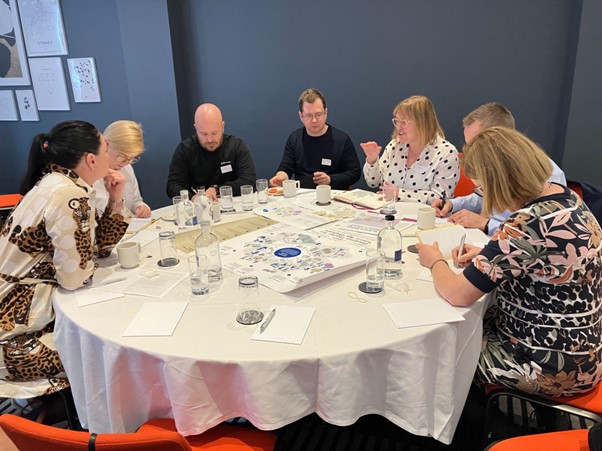
Through this exchange, leaders from Finland and Scotland shared valuable lessons and experiences in advancing equitable, inclusive, and resilient leadership in health and social care. We are proud to have collaborated with the Itla Foundation and Scottish partners, who have shown us what is possible when we embrace change and remain committed to continuous learning.
The lessons learned in Scotland and Finland offer a clear call to action: the future of health and social care depends on leaders willing to listen, collaborate, and lead with courage.
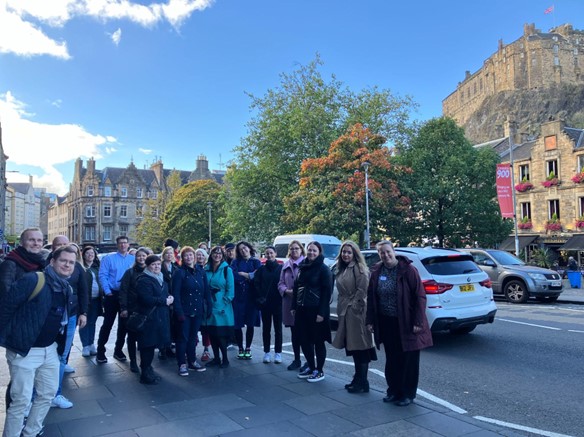
By
Mahreen Zaidi San Miguel
Centre for Public Impact
Photos: Marika Tammeaid
The blog post has also been published on the Centre for Public Impact website.
